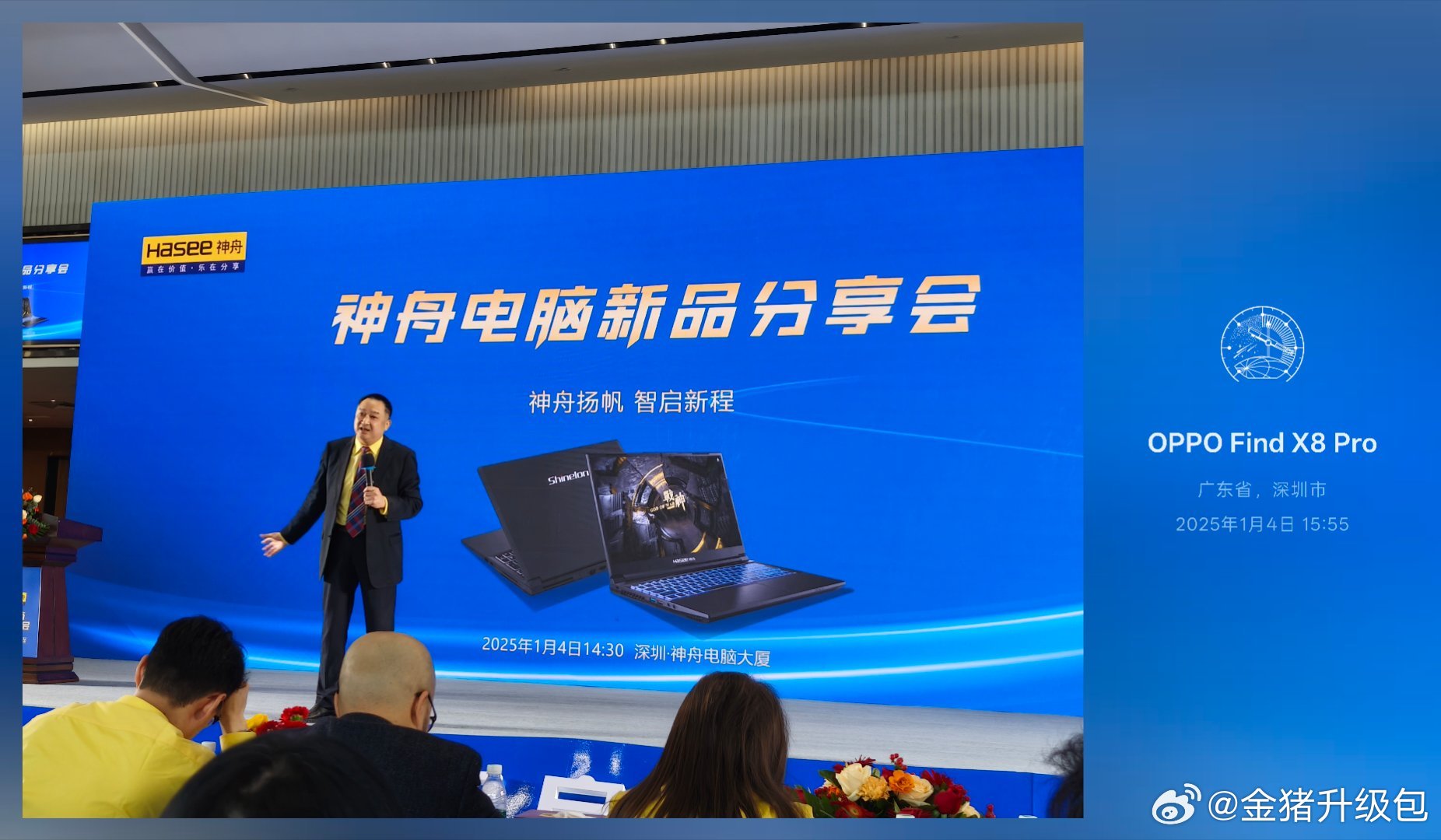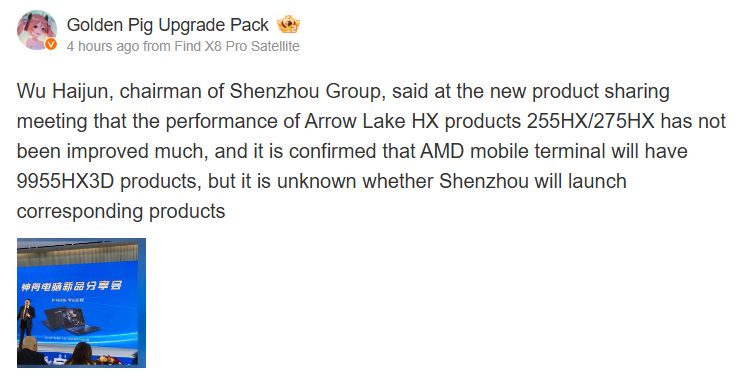
AMD is rumored to be working on a successor to its Dragon Range (Ryzen 7045HX) processor lineup, codenamed Fire Range. Wu Haijun, chairman of Hasee, a Chinese PC manufacturer, has reportedly confirmed that these upcoming CPUs will be branded per AMD's old naming scheme and further asserted the development of an X3D variant on mobile, namely the Ryzen 9 9955HX3D (via Golden Pig Upgrade Pack). In addition, the discussion also touched on Intel's Arrow Lake-HX processors, but the sentiment was not strictly positive.
AMD and Intel offer select processors employing desktop-grade silicon branded with the HX suffix at the high end. With Ryzen 7000, AMD introduced the Dragon Range series, featuring upwards of two CCDs and one IOD, distinct from other mobile counterparts, which are monolithic. These processors are designated for workstations or desktop replacements but suffer from poor battery life due to the multi-chiplet design. Likewise, Intel's HX-series processors are no different, with the latest iteration, Core Ultra 200HX or Arrow Lake HX, expected to debut at CES.
At a recent pre-launch product briefing, Wu Haijun, president and founder of Hasee Computer Company, shared essential details about AMD and Intel's forthcoming HX processors. Reportedly, AMD is porting its X3D or 3D V-Cache technology to mobile with Fire Range X3D.

However, Wu Haijun named the Ryzen 9 9955HX3D, an upcoming mobile CPU from AMD, after the Ryzen 9 7945HX3D. He didn't confirm whether Hasee products would feature this processor on their laptops. Interestingly, while AMD's Zen 5 mobile CPUs have adopted the new Ryzen AI 300 branding, the firm is reviving its old naming scheme for Fire Range.
On the other hand, Arrow Lake-HX was also a part of the discussion at the meeting. Per the report, Intel's 255HX and 275HX, alleged to be 20 and 24 core offerings, respectively, are not that impressive in performance. The exact definition of the word "performance" in this context is unclear, however, it is a known fact that Arrow Lake does not deliver many improvements; if any, over Raptor Lake when we consider raw performance.
Efficiency, on the contrary, is another topic. Arrow Lake-HX should theoretically outperform Raptor Lake-HX if both chips operate within a strict 45W power limit. Still, we'll leave Intel to fill out the extra details at its CES keynote.







